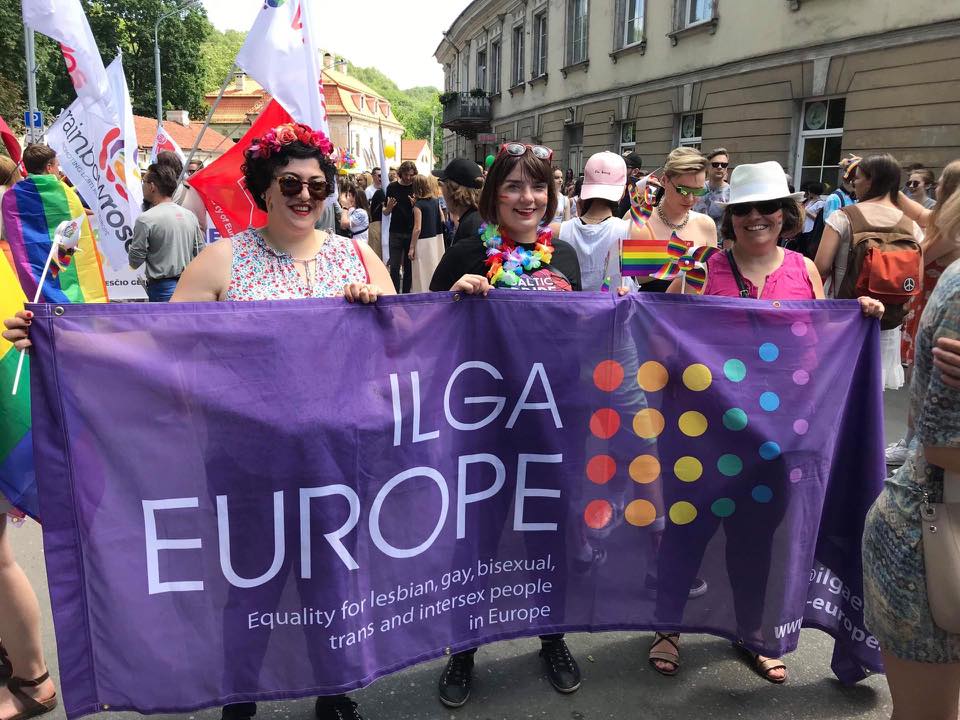- About
- Topics
- Picks
- Audio
- Story
- In-Depth
- Opinion
- News
- Donate
- Signup for our newsletterOur Editors' Best Picks.Send
Read, Debate: Engage.
| December 23, 2021 | |
|---|---|
| topic: | LGBT Rights |
| tags: | #LGBTQI rights, #China, #corporate social responsibility |
| located: | China |
| by: | Sasha Kong |
More than a quarter of century after China legalised homosexuality, a 19-year-old LGBTQ+ activist and a civil servant sued the government for not registering his gay rights organisation in 2014 - bringing forth the first gay rights lawsuit against Beijing.
Fast forward to 2021: a significant LGBTQ+ advocacy group in China that had kept pushing for greater rights shuttered in November for allegedly an “increasingly difficult environment.” This came after China’s state media announced a ban on “effeminate” aesthetics in entertainment shows and called them “vulgar influencers,” arguably reversing the hard-fought improvement of gender and LGBTQ+ rights.
Private corporations are not doing enough to protect LGBTQ+ rights, according to Yuri Guaiana, Senior Campaigns Manager at All Out, which seeks to pressure international companies to defend gay rights of their employees in China.
“Corporates play a crucial role in advancing the human rights of LGBT+ people […] We all spend at least a third of our day working, and so making sure that LGBTQ+ people can work in a safe space free from discrimination is highly beneficial for them and for companies,” Guaiana told FairPlanet.
A survey published on China’s mouthpiece Global Times earlier this year showed that less than 15 percent of the 122 companies studied set up official rules against discrimination and ensure equal opportunities. Among these 17 companies, fewer than half have adopted measures against bias and unequal treatment due to sexual orientation.
“International companies that claim to support LGBT+ issues globally fail to protect their LGBT+ employees in China. This double-standard is unacceptable and needs to end,” Guaiana added.
A 2016 United Nations report revealed that only about five percent of LGBT people are fully out in the workplace in the country, and one-in-five experienced workplace bullying, harassment, or discrimination.
A Chinese LGBTQ+ activist said he had a hard time coming out at workplace. “In most places in China, people do not understand the LGBT+ community, and on some occasions being LGBT+ might even get you fired or not being able to pass the job interview in the very first place,” the activist told FairPlanet on condition of anonymity.
Discrimination has been rampant and posed challenges to the group. A separate report said that employers often reject applicants “whose gender markers on their education credentials are inconsistent with those on their national identification cards.”
Although China stopped classifying homosexuality as a mental illness in 2001, it has been a mixed picture in the country when it comes to protection and legal rights. In mid-2019, a same-sex couple married overseas became the first in Beijing to be named as each other’s “legal guardians,” followed by at least 10 other LGBTQ+ couples in the country, according to South China Morning Post.
In 2015, a teacher in China was forced to stop lecturing anything on homosexuality in the classroom after coming out as gay, and was even financially penalised. In 2019, a kindergarten teacher in Qingdao was allegedly sacked for being gay.
In 2014, in a rare victory for gay rights activists, a Beijing court ruled that a Chinese clinic must compensate a gay man for giving him electric shocks intended to change his sexual orientation.
“There used to be a lot of shock therapies for LGBT+ people in China, but after 2014, it is now not very common. I personally have never been suggested with this,” the anonymous activist said.
In the same year, a government spokesperson said at a UN session that people in China will not be discriminated against because of their sexual orientation.
However, the Asian nation with seven million LGBTQ+ people does not appear to walk the talk by taking proactive anti-discrimination actions against the group.
Chinese law does not forbid LGBT-based discrimination in the workplace, which discourages companies from enacting in China the rules they must adopt in other countries to protect the group.
Without legal protection, activists resort to the people's power to pressure commercial corporations to act further.
“If enough people join this global campaign [All Out] calling on Coca-ColaTik, Starbucks, H&M, L’Oreal and TikTok to put in place protections for their LGBTQ+ workers in China, we can show them that their customers around the world are watching them and they care,” Guiana said.
“Their international reputation is at stake here: They can’t leave 70 million people behind.”
Image by Cecilie Johnsen
By copying the embed code below, you agree to adhere to our republishing guidelines.
